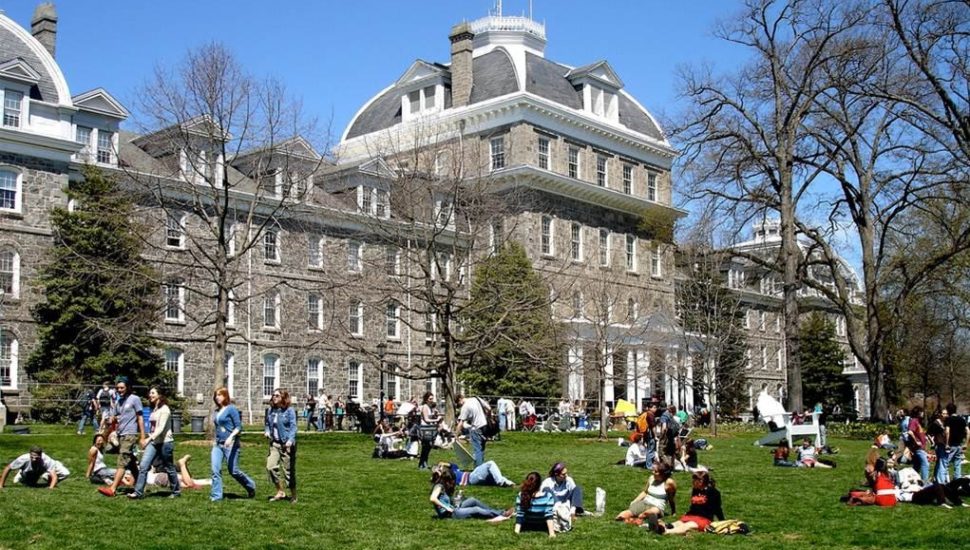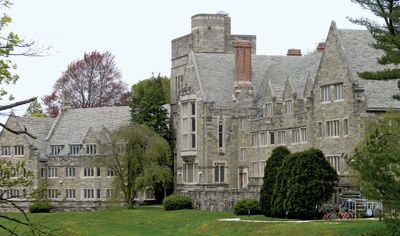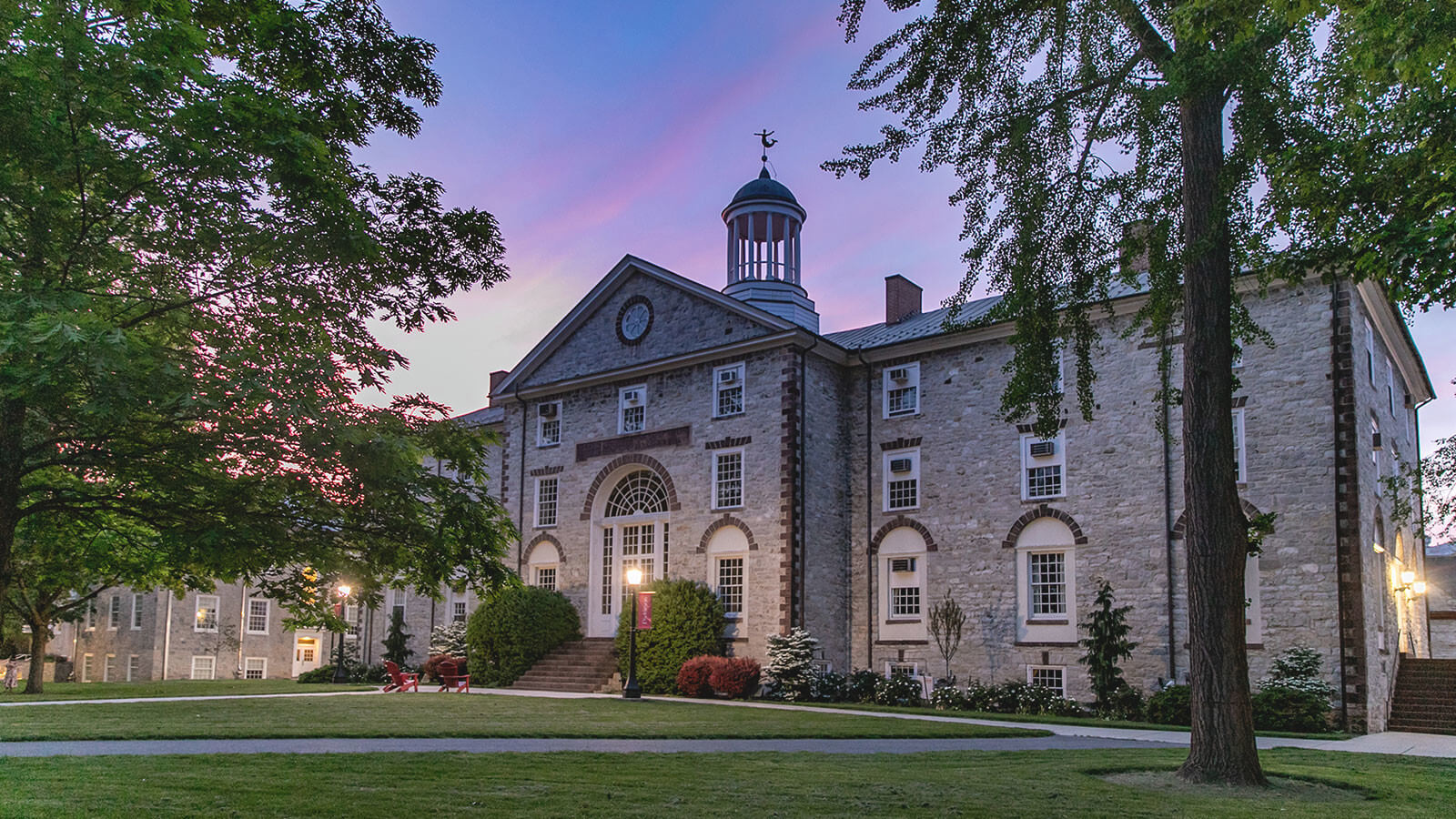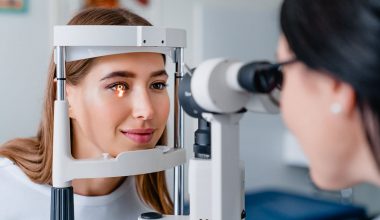Pennsylvania is home to diverse higher education institutions, ranging from massive research universities to small, intimate colleges. While large universities may offer a bustling atmosphere and a wide range of resources, small colleges in Pennsylvania provide a unique and personalized experience that can help students academically and socially thrive.
In this article, we’ll examine the best small colleges in Pennsylvania and what makes them stand out. From top-notch academics to close-knit communities, these institutions have much to offer for students who value individual attention and a tight-knit community. So, without further ado, let’s explore the best small colleges in Keystone State!

Table of contents
- Why Should You Consider Getting Into The Best Small Pennsylvania Colleges
- What Are The Admission Requirements For The Best Small Colleges In Pennsylvania?
- What Is The Admission Process For The Best Small Colleges In Pennsylvania?
- How Do Small Colleges In Pennsylvania Compare To Larger Institutions?
- What Is The Cost Of Attending The Best Small Colleges In Pennsylvania?
- Is There Financial Aid Available At The Small Colleges In Pennsylvania?
- How Do Small Colleges In Pennsylvania Rank Nationally, And What Are Their Graduation Rates And Job Placement Statistics?
- 10 Best Small Pennsylvania Colleges
- Frequently Asked Questions
- Conclusion
- References
- Recommendations
Why Should You Consider Getting Into The Best Small Pennsylvania Colleges
There are several reasons why you should consider getting into the best small colleges in Pennsylvania:
Personalized attention
Small colleges often have a lower student-to-faculty ratio, meaning students can receive more personalized attention and guidance from professors. This can lead to a more supportive and engaging learning environment.
Strong sense of community
Small colleges often foster a strong sense of community among students and faculty. This can lead to lasting friendships and connections that extend beyond the classroom.
If you are considering biology in U.K, read: Best Universities For Biology In U.K | 2023
Focus on undergraduate education.
Small colleges in Pennsylvania often prioritize undergraduate education and offer various opportunities for students to engage in research, internships, and other experiential learning opportunities.
Unique programs and strengths
Each small college in Pennsylvania has its own unique programs and strengths. For example, some colleges are known for their vital liberal arts programs, while others focus on STEM or professional programs.
Read this similar article: Small New York NY Colleges In 2023 | Apply Now
Career Preparation
Small colleges often offer career services and resources to help students prepare for life after graduation. This can include networking opportunities, resume building, and job placement assistance.
Attending a small college in Pennsylvania can provide a high-quality education, a supportive community, and a range of personal and professional growth opportunities.
Check out this U.K university: Best Criminology Universities In UK | 2023
What Are The Admission Requirements For The Best Small Colleges In Pennsylvania?
The admission requirements for the best small colleges in Pennsylvania vary from school to school. Generally, these schools will look at a combination of factors, including:
- Academic performance: Admission committees will review applicants’ high school transcripts to assess their academic performance. They will consider factors such as GPA, course rigor, and class rank.
- Standardized test scores: Many schools require applicants to submit standardized test scores, such as the SAT or ACT. However, some schools are now test-optional, meaning students can choose whether or not to submit scores.
- Extracurricular activities: Small colleges in Pennsylvania often look for well-rounded applicants involved in extracurricular activities, such as clubs, sports, volunteer work, or part-time jobs.
- Essays and letters of recommendation: Applicants may be required to submit one or more essays as part of the application process and letters of recommendation from teachers or other mentors.
- Interviews: Some schools may require or offer the option of an interview, which can provide an opportunity for applicants to demonstrate their interest in the school and showcase their personality and communication skills.
It’s essential to research the specific admission requirements for each school you’re interested in and to contact the admissions office with any questions. Additionally, many schools have a holistic admissions process, considering all aspects of an applicant’s profile, not just one specific factor.
Check out: 10 Best Universities in the UK for Marketing in 2023
What Is The Admission Process For The Best Small Colleges In Pennsylvania?
The admission process for the best small colleges in Pennsylvania typically involves several steps:
Step 1- Research and exploration
Before applying, it’s essential to research and explores different small colleges in Pennsylvania to determine which ones align with your academic and personal goals.
Check out this U.K university: 10 Best Universities for Criminology in the UK | 2023
Step 2- Application submission
Once you have identified the schools you want to apply to, you must complete and apply. The application will typically require information about your academic record, test scores, extracurricular activities, essays, and letters of recommendation.
Check out: 10 Best Small Engineering Colleges in 2023 | Apply Now
Step 3- Application review
After you submit your application, the admissions committee will review it to assess your academic and personal qualifications. This may involve a holistic review process considering multiple factors beyond grades and test scores.
Step 4- Interview (if applicable)
Some schools may require or offer the option of an interview, which can allow you to demonstrate your interest in the school and showcase your personality and communication skills.
Read this similar article:10 Best Small Colleges in Massachusetts | 2023 Apply Now
Step 5- Admission decision
Once the admissions committee has reviewed your application, they will decide on admission. You will receive a letter or email notifying you of the decision.
Step 6- Enrollment
If you get admission, you will typically be required to submit an enrollment deposit to secure your spot at the school. You will also need to complete any additional steps required by the school, such as submitting final transcripts or conducting a health form.
It’s important to carefully follow the application instructions and deadlines for each school you apply to and to reach out to the admissions office with any questions or concerns. Additionally, start the application process early to ensure you have enough time to submit a robust application.
Check out: 10 Best Universities for Biomedical Sciences in the UK | 2023
How Do Small Colleges In Pennsylvania Compare To Larger Institutions?
Small colleges in Pennsylvania and larger institutions can differ in several ways. Here are some key differences to consider:
Size
Small colleges in Pennsylvania typically have fewer students and a smaller campus, while larger institutions can have tens of thousands of students and a sprawling campus.
Class size
Small colleges often have smaller class sizes, allowing for more personalized attention from professors and more opportunities for discussion and collaboration with classmates. Larger institutions may have larger classes, making it more challenging for students to get individual attention from professors.
Check out this U.K university: 10 Best Universities for Physics in the UK | 2023
Research opportunities
Larger institutions often have more research resources and opportunities for students, including access to cutting-edge equipment and collaboration with renowned researchers. However, small colleges also offer research opportunities, and the smaller community can sometimes make it easier for students to get involved in research projects.
Read this similar article: BMAT Universities In 2023 | 10 Best BMAT Schools in the UK
Course offerings
Larger institutions typically offer a more comprehensive range of courses and majors, while small colleges may have more focused programs in specific areas. This can be a consideration for students seeking a particular field of study.
Campus culture
Small colleges often have a more tight-knit campus community and a strong school spirit. In contrast, larger institutions can have a more diverse student body and a more comprehensive range of social and cultural opportunities.
Choosing between a small college in Pennsylvania and a more prominent institution will depend on your personal preferences and academic and career goals. It’s important to research both types of schools and consider what factors are most important to you.
Check out: 10 Best Small Midwest Colleges In 2023| Apply Now
What Is The Cost Of Attending The Best Small Colleges In Pennsylvania?
The cost of attending the best small colleges in Pennsylvania can vary depending on the school and a student’s financial situation. Here are some factors to consider:
Tuition and fees
Tuition and fees at small colleges in Pennsylvania can range from several thousand dollars to tens of thousands per year. Private colleges generally have higher tuition rates than public colleges.
Room and board
In addition to tuition and fees, students must pay for room and board if they live on campus. This can add several thousand dollars to the total cost of attendance.
Check out: 10 Best Private Universities In California| 2023 Apply
Financial aid
Many small colleges in Pennsylvania offer financial aid through scholarships, grants, and loans. Students should research the financial aid options available at each school they are considering and submit the appropriate applications.
Read this similar article: Best Criminology Universities In UK | 2023
Other expenses
Students should also budget for other expenses like textbooks, supplies, transportation, and personal expenses.
To get an idea of the cost of attending the best small colleges in Pennsylvania, it’s a good idea to research the tuition and fees for each school and use a college cost calculator to estimate other expenses. Additionally, students can reach out to the financial aid office at each school to learn more about available financial aid options.
Check out this U.K university: Best Universities For Biology In the U.K | 2023
Is There Financial Aid Available At The Small Colleges In Pennsylvania?
Yes. Many small colleges in Pennsylvania offer financial aid to help students pay for their education. Financial assistance can come from scholarships, grants, loans, and work-study programs. Here are some things to keep in mind:
Scholarships and grants
These are forms of financial aid that do not need a repayment. Many small colleges in Pennsylvania offer scholarships and grants based on academic achievement, financial need, and other factors.
Students should research the financial aid options available at each school they are considering and submit the appropriate applications.
Check out: Small New York NY Colleges In 2023 | Apply Now
Loans
Loans are a form of financial aid that needs repayment with interest. Many small colleges in Pennsylvania offer loans to students and their families to help cover the cost of attendance.
Work-study program
Work-study programs allow students to work part-time on campus to help pay for their education. Many small colleges in Pennsylvania offer work-study programs to students who demonstrate financial need.
To apply for financial aid at a small college in Pennsylvania, students should submit the Free Application for Federal Student Aid (FAFSA) and any additional financial aid applications required by the school.
The financial aid office at each school can guide the application process and answer any questions students may have about financial aid. Students must apply for financial aid early to ensure they have enough time to receive and review their financial aid package before deciding where to attend college.
Check out: 10 Best Universities in the UK for Marketing in 2023
How Do Small Colleges In Pennsylvania Rank Nationally, And What Are Their Graduation Rates And Job Placement Statistics?
The ranking, graduation rates, and job placement statistics of small colleges in Pennsylvania can vary depending on the school. However, here are some general trends:
Rankings
Many small colleges in Pennsylvania are highly regarded and ranked nationally by publications like U.S. News & World Report, Forbes, and Princeton Review. These rankings consider factors like academic reputation, student selectivity, graduation rates, and alums giving.
Check out: 10 Best Small Engineering Colleges in 2023 | Apply Now
Graduation rates
Graduation rates at small colleges in Pennsylvania are generally high, with many schools reporting rates above 80%. This is partly due to the personalized attention, and support students receive from faculty and staff, as well as the smaller, more tight-knit campus community.
Job placement
Small colleges in Pennsylvania often have strong career development offices and alums networks that can help students find internships and job opportunities after graduation. Many small colleges also have partnerships with local businesses and organizations that can provide valuable networking opportunities.
These statistics can vary widely depending on the school, and the specific programs and majors offered. Students should research the graduation rates and job placement statistics for each school they are considering and contact the career development office and alums network to learn more about job opportunities after graduation.
Additionally, visiting each school and speaking with current students and faculty is a good idea to understand the school’s academic and social culture.
Check out this U.K university: 10 Best Universities for Criminology in the UK | 2023
10 Best Small Pennsylvania Colleges
#1. Swarthmore College

Located near Philadelphia, Swarthmore College is a highly selective liberal arts college known for its rigorous academic programs and commitment to social justice. With a student-to-faculty ratio of 8:1 and an average class size of 12, Swarthmore offers a highly personalized educational experience.
Read this similar article:10 Best Small Colleges in Massachusetts | 2023 Apply Now
#2. Haverford College
Also located near Philadelphia, Haverford College is a highly selective liberal arts college with a strong emphasis on independent study and research. The college is known for its Honor Code, which fosters a strong sense of community and mutual respect among students.
Check out: 10 Best Universities for Biomedical Sciences in the UK | 2023
#3. Bryn Mawr College

A women’s college located near Philadelphia, Bryn Mawr College is known for its vital academic programs in the humanities, social sciences, and natural sciences. The college also has a solid commitment to diversity and inclusion, with a student body that includes students from over 45 countries.
#4. Dickinson College

Located in Carlisle, Pennsylvania, Dickinson College is a liberal arts college known for its vital environmental studies, international studies, and sustainability programs. The college also has a strong commitment to civic engagement and community service.
If you are considering biology in U.K, read: Best Universities For Biology In U.K | 2023
#5. Franklin & Marshall College
Located in Lancaster, Pennsylvania, Franklin & Marshall College is a liberal arts college with a strong emphasis on interdisciplinary learning and research. The college is known for its natural sciences, social sciences, and humanities programs.
#6. Gettysburg College
Located in Gettysburg, Pennsylvania, Gettysburg College is a liberal arts college known for its vital programs in history, political science, and international affairs. The college is also home to the Civil War Institute, which promotes research and scholarship on the Civil War era.
Check out this U.K university: Best Criminology Universities In UK | 2023
#7. Allegheny College
Located in Meadville, Pennsylvania, Allegheny College is a liberal arts college known for its vital environmental science and sustainability programs. The college also has a solid commitment to experiential learning, with internships, research, and study abroad opportunities.
#8. Juniata College

Located in Huntingdon, Pennsylvania, Juniata College is a liberal arts college known for its vital natural sciences, social sciences, and humanities programs. The college also has a strong commitment to interdisciplinary learning and experiential education.
Read this similar article: Small New York NY Colleges In 2023 | Apply Now
#9. Ursinus College
Located in Collegeville, Pennsylvania, Ursinus College is a liberal arts college known for its vital humanities, social sciences, and natural sciences programs. The college also has a strong commitment to undergraduate research and independent study.
#10. Lafayette College

Located in Easton, Pennsylvania, Lafayette College is a liberal arts college known for its strong engineering, natural sciences, and business programs. The college also has a strong commitment to community service and civic engagement.
Each of these colleges offers a unique educational experience, with vital academic programs, personalized attention from faculty, and a commitment to fostering a strong sense of community and civic engagement among students.
Students should research each college and visit the campus to understand the academic and social culture and determine which school best fits their interests and goals.
Check out: 10 Best Universities in the UK for Marketing in 2023
Frequently Asked Questions
Attending a small college in Pennsylvania can provide the following:
Personalized attention and support from faculty and staff.
Opportunities for close relationships with classmates.
A tight-knit community atmosphere.
Small colleges often offer smaller class sizes and a more intimate learning environment that can foster academic and personal growth.
The cost of attending small colleges in Pennsylvania can vary, but many offer financial aid and scholarships to eligible students to help offset the cost. Researching the specific school’s financial aid offerings and eligibility requirements is essential.
Student-to-faculty ratios at small colleges in Pennsylvania are generally lower than at larger institutions, which can lead to more individualized attention and mentorship from professors. This can lead to a more engaged and supportive learning experience for students.
Small colleges in Pennsylvania offer various extracurricular activities and community involvement opportunities, such as student organizations, clubs, volunteer work, internships, and research opportunities. These opportunities can help students build skills, explore interests, and connect with their community.
Conclusion
Pennsylvania’s small colleges offer a unique and rewarding experience for students seeking a more personalized approach to their education. From the beautiful campus of Bryn Mawr College to the liberal arts powerhouse of Swarthmore College, these institutions offer top-notch academics, tight-knit communities, and a wealth of opportunities for personal and intellectual growth.
Whether you’re interested in pursuing a career in the arts, sciences, or humanities, there’s a small college in Pennsylvania that can help you achieve your goals. So, if you’re looking for a genuinely one-of-a-kind college experience, consider exploring the best small colleges in Pennsylvania – you may find the perfect fit for you!
Check out: 10 Best Small Engineering Colleges in 2023 | Apply Now
References
- https://www.niche.com
- https://www.prepler.com
- https://www.greatcollegedeals.net
- https://academicinfluence.com
Recommendations
- 10 Best Small Engineering Colleges in 2023 | Apply Now
- 10 Best Universities for Criminology in the UK | 2023
- 10 Best Small Colleges in Massachusetts | 2023 Apply Now
- 10 Best Universities for Biomedical Sciences in the UK | 2023
- 10 Best Universities for Physics in the UK | 2023
- BMAT Universities In 2023 | 10 Best BMAT Schools in the UK


